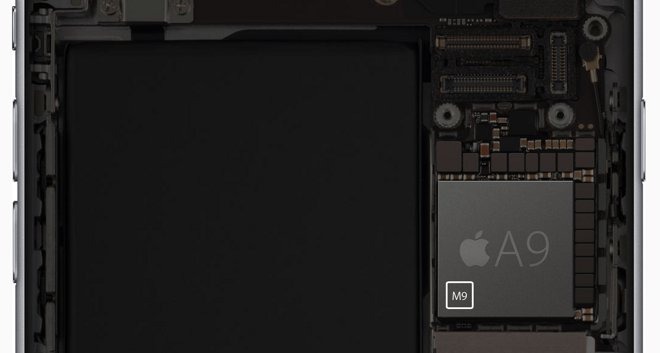Intel is looking to get a piece of Apple's booming iPhone business, a report said Friday, as the chipmaker has some 1,000 people working on a project to integrate the firm's upcoming 7360 LTE modem into next year's iPhone model.
Citing people familiar with the matter, VentureBeat reports Intel is pushing hard to get a version of its cellular modem into the 2016 iPhone, expected to be called "iPhone 7." Apple has yet to officially place an order, but a deal is a real possibility if Intel continues to deliver on project goals, one source said.
Apple is reportedly sending a handful of engineers to Intel's German operation, formerly the location of modem maker Infineon, to help optimize the 7360 LTE modem for use in iPhone 7. The Cupertino, Calif., tech giant also hired key personnel from the team that created said modem.
For Intel, striking an agreement to supply Apple with a critical iPhone component would be a major win, especially considering Apple has for years relied on Qualcomm as a single source for all iPhone cellular modems, including the new iPhone 6s. Rumors in August suggested Qualcomm might see part of its iPhone component share ceded to Intel by 2017.
"This is a must-win for Intel," a source said.
The potential deal has implications far beyond next year's iPhone, however. Apple is said to be working toward an A-series system-on-chip design with integrated modem, and fabrication could fall to Intel if all goes well. Combining critical components into an SoC affords greater power efficiency and overall performance, not to mention a streamlined manufacturing process. The A9 chip with its embedded M9 motion coprocessor is a prime example of Apple's path to fully integrated silicon.
Further, if and when Apple moves to integrate modems into A-series chips, Intel might get the job of fabricating the SoCs, the report claims. This point is up for debate, however, as Intel would have to scale its 10-nanometer process to iPhone-level production in two years. Apple is currently dual-sourcing A9 chips from TSMC, which uses a 16nm FinFET process, and Samsung, which employs a 14-nanometer process.
 Mikey Campbell
Mikey Campbell







-m.jpg)






 Charles Martin
Charles Martin
 Christine McKee
Christine McKee
 Wesley Hilliard
Wesley Hilliard
 Malcolm Owen
Malcolm Owen
 Andrew Orr
Andrew Orr
 William Gallagher
William Gallagher
 Sponsored Content
Sponsored Content







16 Comments
If it would be integrated, then it would be fabbed by Intel!! That would be big news indeed if this occured, TSMC and Samsung would have a bad day if that occured.
Apple should do a major investment in Intel and have them supply all their future chips (processors, modems and flash storage). Then they would have complete control over their chip production without issues like they're currently having (dual sourcing Samsung and TSMC, and having processors with different performance characteristics).
Something along the lines of what they do with their manufacturers where Apple invests in and owns much of the equipment, and the manufacturer uses it to build Apple devices.
I don't think Apple would want to buy Intel outright (too expensive), especially with the slowing PC market.
Apple should do a major investment in Intel and have them supply all their future chips (processors, modems and flash storage). Then they would have complete control over their chip production without issues like they're currently having (dual sourcing Samsung and TSMC, and having processors with different performance characteristics).
Something along the lines of what they do with their manufacturers where Apple invests in and owns much of the equipment, and the manufacturer uses it to build Apple devices.
I don't think Apple would want to buy Intel outright (too expensive), especially with the slowing PC market.
I didn't think Intel gave a damn about Apple products, was always late in getting anything new to market, and all their chips ran too hot to work properly in mobile devices. Apple dual sources the fabbing because no one fab site can handle their requirements.
This sounds a bit like putting all your eggs in one basket. Say Apple commits to Intel's integrated modem and then goes with Intel for all chip fab. What happens if there is a fabrication problem? What happens if a modem problem surfaces after phone are built? The impact on Apple would be enormous. Apple could potentially be without a product to sell for an extended time if Intel screws up - which they have done in the past.
Iphone 7 in 2016 is entry for intel to supply XMM 7360 LTE modem chip. Intel's Modem chip was announed early this year so it should be under Apple's approval process. But real deal will come in 2017 iPhone 7S when intel will help Apple to integrate and fabricate ASIC A11/MP, LTE modem, Wifi into single SOC on 10nm process.